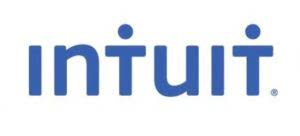
Ledgers, often bound in leather, were the repositories of a company’s financial history. Each entry was a handwritten or typewritten note, documenting expenses, revenue, and balances. Nanonets can extract and consolidate accounts-related data from various sources such as email, digital files, scanned documents, cloud storage, ERP, and API.

On the other hand, virtual accounting services offer a broader range of financial management solutions beyond basic bookkeeping tasks. Virtual accountants may provide financial analysis, tax planning, budgeting, forecasting, cash flow management, and strategic financial advice. They analyze financial data, interpret trends, and provide insights to help businesses make informed decisions and achieve their financial goals. Virtual bookkeeping involves managing financial records and transactions remotely using digital tools and technologies. It leverages cloud-based accounting software and automation to streamline tasks such as data entry, reconciliation, and reporting without needing a physical presence in the client’s office.
NerdWallet’s picks for the best online bookkeeping services
Once the client and the virtual bookkeeper have agreed on the terms of engagement, the next step involves setting up the necessary systems and software. The virtual bookkeeper ensures the software is tailored to the client’s business needs and integrates seamlessly with existing processes. The continuous stream of financial data provided by real-time reporting enables a more nuanced understanding of a company’s fiscal position. Managers can observe the impact of their decisions instantaneously and measure the effectiveness of new initiatives in actual financial terms. Only an accountant licensed to do so can prepare certified financial statements for lenders, buyers and investors.
- The continuous stream of financial data provided by real-time reporting enables a more nuanced understanding of a company’s fiscal position.
- A journal contains the daily transactions (sales, purchases, and so on), and the ledger contains the record of individual accounts.
- Bench uses its own accounting product, however, and doesn’t integrate with popular accounting software, which could make for a trickier software transition down the line if you outgrow Bench.
- Online bookkeeping tools provide encryption and data backup but may be vulnerable to cyber threats.
- As companies seek to harness the power of their financial data, they are moving beyond mere record-keeping into a realm where financial information informs decision-making in real-time.
- For instance, you might use online tools for daily transactions and a traditional bookkeeper for monthly or annual financial reviews.
Often, office management tasks like customer billing, paying vendors and payroll are considered to be bookkeeping tasks. Although accounts receivable, accounts payable and payroll do impact your books, some of these tasks can be managed by a person in your company other than your bookkeeper. Others, like payroll, can be outsourced to independent companies that specialize in the task. Data entry involves entering your business’s transactions into your bookkeeping system. As mentioned above, a lot of the data entry now happens automatically, either through OCR or bank feeds.
Simplifying Complex Tasks
The advent of accounting software significantly lessened the tediousness of bookkeeping by handling debits and credits for you in the background. And technologies like optical character recognition (OCR) and bank feeds have come just short of fully automating the traditional bookkeeping process. Data entry can now happen as soon as you snap a photo of a receipt with your smartphone. And reconciliations happen almost in real time through daily bank feed maintenance, making the end-of-month closing process a snap. Now one bookkeeper can manage the bookkeeping for several businesses in fewer than eight hours a day.
- The company offers a range of plans based on which accounting method you use and how often you wish to receive reports and updates.
- During this meeting remotely, the client outlines their specific financial needs, goals, and preferences.
- However, traditional bookkeepers remain essential to many businesses, particularly those with unique requirements or preferences for on-site financial management.
- From tracking expenses and invoicing clients to preparing tax documents, virtual bookkeepers provide peace of mind and ensure financial compliance for self-employed professionals.
However, it’s still a good idea to ask an accountant to review your bookkeeper’s financial statements for accuracy and completeness prior to submitting them to a third party for consideration. And even if you’re not looking for funding, consider asking an accountant to review your financial what is virtual bookkeeping statements at least once a year. Some bookkeepers focus solely on “write up” work, which basically consists of compiling the books quickly, usually for tax preparation purposes. Other bookkeepers provide “full-charge” services and can even serve as a financial controller for your company.
